|
본 연구는 한국 차문화의 정신문화적 측면의 개념 정립이 미흡한 실정에 착안하여, 정신적 위상이 반영되어야 할 차문화의 진의를 되찾고 그 폭을 넓혀 진일보한 차생활 영위와 교육이 이루어 질 수 있도록 올바른 방향을 모색(摸索)하는데 목적을 두었다.
연구대상인 한재의 생애와 도학(道學)정신이 차를 통한 수양에 어떠한 영향을 미쳤는지 「다부(茶賦)」를 통해 사상적 기반을 파악하였으며, 「다부」에 나타난 한재의 차정신의 역사적 위상을 살펴봄으로써 현대를 사는 우리들에게 어떤 의미를 제시하는지를, 오늘에 당면한 문제와 연결시켜 현대적 의의를 논하였다.
우리나라 선비문화의 원류를 이루었던 한 사람인 한재(寒齋) 이목(李穆, 1471~1498)은 일세(一世)를 빛낼 인물이었지만 온축(蘊蓄)한 경륜과 포부를 제대로 펴 보지도 못한 채 28세로 생애를 마감하였다. 항상 자신의 도에 어긋나지 않도록 일의 시비(是非)를 가리고 선악을 분별함에 있어 굳고 곧아서 그의 기절과 풍채는 흠모하지 않은 사람이 없었다고 한다.
그가 저술한 「다부」는 지금으로부터 500여년전 '부(賦)'라는 문체적 특성을 바탕으로 차의 정신적 위상을 반영한 유가(儒家)의 산물이다.
당시는 문(文)을 통해 사상을 표현하던 시기인 만큼 「다부」에도 유가의 철학과 도가의 정신이 간결한 문장 속에 깃들어 있다. 이에 「다부」의 사상적 기반은 유교사상을 기반으로 하고 노장사상을 취사한 사상체계로 두드러진 특징을 이루고 있다.
유자인 한재는 존현사상(尊賢思想)에 입각하여 「다부」를 저술하였고, 노장사상(老莊思想)의 바탕 위에 유교의 시각으로 차의 칠수(七修)·오공(五功)·육덕(六德)을 논하였으며, 노장과 신선사상의 경지를 칭송하며 유·도 사상을 섭렵하였다.
그러나 맺음말에서 삶과 죽음의 근본이 하나라고 하여 양생(養生)의 한계를 우회적으로 드러내며 그의 사상적 기반이 유교에 있음을 밝혔다. 수기치인(修己治人)의 실천적 도를 기본정신으로 삼고 있는 한재에게 차란 구도(求道)와의 연결이었다.
높은 정신적 경지를 추구하는 수양방법의 일환으로 차의 성품에 주목하였으며 나아가 단순한 음료의 차원을 벗어난 정신적 매개체의 역할로 자리매김하게 되었다.
한재의 올곧은 성품은 당세(當世)의 어지러운 시류와 영합하기에는 그 뜻이 맞지 않았다. 시대적 상황에서 파생되는 환경적 요인은 한재로 하여금 차의 성품에 더욱 매진하게 하였으며, 그가 철학을 담아 명명한 차의 이명(異名)인 '한'과 '파'에서 그 진의를 확인 할 수 있었다.
한재는 '한'을 통해 자신의 본성을 찾으려 했고, 나아가 '파'를 통해 시대적 삶의 역경을 극복하고자 했다. 유가의 도학과 심학(心學)에 입각하였던 한재는 차와 마음이 분리될 수 없다고 하여 '차심일여(茶心一如)'의 사상을 강조함으로써, 궁극적으로 '오심지차(吾心之茶)'라는 차정신의 결정을 도출하였다.
'오심지차'는 한재의 차정신의 주체이다. 한갓 논리적 인식의 대상이 아닌 이미 마음속에서 용해되어 주체적으로 자각할 수 있는 정신을 가리키는 것이다.
정신적인 가치보다는 물질적인 가치를 우월하게 생각하는 현 시점에서 '오심지차'는 인간의 정신적 궁핍으로부터의 탈피에 적지 않은 역할을 할 것이다.
즉, '내 마음의 차'로 차정신을 고취시킴으로써 현대차문화의 정신을 회복시키는데 일익을 담당하게 될 것이며, 우리가 실천해야 할 귀중한 정신적 유산으로 '한재의 차 정신'은 무한한 발전의 가능성을 지닌 차계(茶界)에 새로운 이정표를 제시하게 될 것이다.
Hanjae Imok(寒齋 李穆 A.D 1471~1498) one of the persons who is formed the original stream of classical scholar culture of our country. Also a person who brightened the time by writing a book called 'Daboo'(茶賦), the writing which praised tea. Tragically ending his life at the age of 28 he failed to spread his accumulated administration and aspiration right.
To examine his thought tendency through the Daboo(茶賦) of Hanjae, he mastered the philosophy of Lao-tze and Chung-tze by accepting and taking it positively on the basis of Confucianism. This is the conspicuous feature over the whole of thought system of Daboo(茶賦). So, the will may be confirmed from the writing motive that he, himself who was a Confucian tried to write Daboo(茶賦) with a sense of responsibility of the thought to respect sage. But, he understood the cause and effect of tea from the viewpoint of Confucianism throughly, while he recognized the viewpoint and feature of the philosophy of the Lao-tze and Chung-tze completely.
Tea enabled Hanjae who was regarding the practical reason to cultivate oneself and govern people as basic spirit to notice the character of tea as the connection with seeking after truth and a part of training method to seek high spiritual state. Furthermore, it came to settle as the role of spiritual beverage to break from the dimension of simple beverage.
This can be confirmed from the fact that he tried to find the character of tea and he tried to be the character of tea through 'Han'(□) and 'Pa' which are the another names of tea that he named originally. The honest character of Hanjae was not suitable for going with the confused lifestyle of his times, and the environtmental factor to be derived from period situation enabled him to fall into the character of tea.
That is, what he took as a means to keep himself and cultivate the world in the corrupt world was that he tried to empathize the loft character and life of tea by attaching grass head on Han(□) which is the pen name of his own and Pa which is the origin of all the storms of life.
In Hanjae, subjective tea spirit is not simply the metaphisycal essence of the subject of logical recognition. But, he tried to express the tea spirit to be able to say subjective awakening by being melted in his mind.
Thus, Hanjae who emphasized mind learning with Confucian philosophy in the teaching of Confucius is deducing the tea spirit that I and tea are same through the thought that tea and mind are same that 'tea and mind are inseparable'.
That is, at the present point of time to uplift the tendency of thinking to think material value and sense principle superiorly to spiritual value, that 'my mind is tea', the tea spirit of Hanjae which appeared in Daboo(茶賦) will play much role for the sloughing from the spiritual want of human beings, and it will present the educational milestone toward the efforts for the settlement of right tea culture.
|


 한국학술정보 에서 제공하는 논문입니다.
한국학술정보 에서 제공하는 논문입니다.














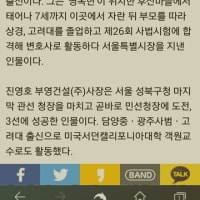
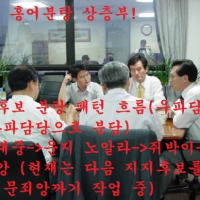


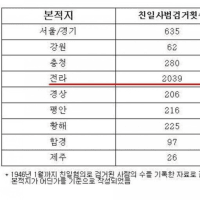
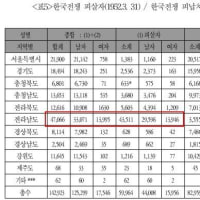
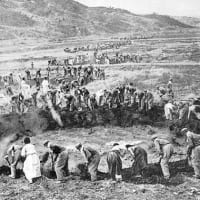
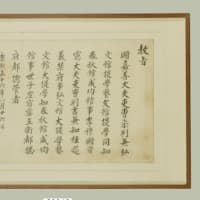
※コメント投稿者のブログIDはブログ作成者のみに通知されます